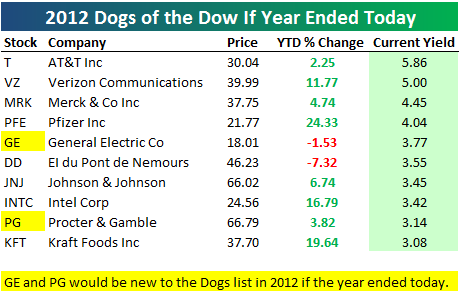 By Kimberly Clouse, Advisory Board Chair, Covestor and Founder & CEO, Via Global Advisors
By Kimberly Clouse, Advisory Board Chair, Covestor and Founder & CEO, Via Global Advisors
Change can be difficult – so difficult that many prefer to stay the course rather than endure the discomfort that often accompanies change. But when it comes to your personal finances, the stakes are too high to remain in an uncomfortable situation. It’s up to you to protect your financial future and your own peace of mind.
Many different professionals provide advice and/or personalized information about investments and personal finances: stockbrokers, financial advisors, and investment professionals. Regardless of what specific type of financial company your broker works for or what initials he has behind his name, you have hired this person to help you realize your financial goals.
Based on my fifteen years of experience working in wealth management serving individuals and families, here are six signs that may mean it is time for a change:
1. He doesn’t talk about what all of this is for
Your broker should make it clear to you that he really understands your financial goals. If you have never actually articulated those goals, your advisor should help you do so, on his own initiative.
Your advisor should then show you how the investment portfolio he suggests reflects these goals and is designed to help you meet them.
Finally, your financial advisor should help you determine, on an ongoing basis, if you are on track to reach your financial goals.
If any of these elements of “what it’s all for” are missing, that’s a big red flag in your relationship.
2. You don’t feel like the client
The unfortunate reality with some investment professionals is that not all work – or are even obligated to work – with their client’s best interests at the heart of their decisions. When this happens, you can end up feeling like your needs are not front and center – because they’re not.
Your advisor should be a fiduciary – that is, under a regulatory obligation to put your best interests ahead of any other consideration (including their own compensation) when making investment decisions. If you don’t know if your advisor is a fiduciary, then ask.
This will help you understand where the potential areas for conflicts of interest lie, and to ensure that you – and not some financial product provider – are really their client.
3. Your performance lags – in up and down markets
Brokers will often claim that they may underperform in up markets but will protect you on the downside, especially when the market has a major dip. Ask about the performance of your advisor’s “typical client” during 2008 and 2009 and take a look at the facts.
Even a good broker can occasionally sell you an investment that loses money. If it is part of a diversified portfolio that is expected. But it’s a problem if you are being consistently sold underperforming investments products and most of them underperform. Lose 30% of your $1 million portfolio, and assuming an average return of 6% a year, it would take you more than six years just to get back to where you started.
4. They won’t answer questions about fees
You can pay a commission, you can pay as a percentage of assets, you can pay trading cost and even for the custody of the assets; the fees you’re paying can add up very quickly and erode whatever you have earned from your investments.
Ask your broker: “What is the total amount of fees and expenses that I pay each year, including advisory fees, investment management fees, and other fees?“
Also ask: “How are you compensated (both directly and indirectly) for this relationship? Do affiliated broker-dealers and insurance agencies also compensate you for the products you suggest?”
If the answer to the latter question is “yes”, then your broker may be conflicted and probably isn’t a fiduciary.
5. Risk management is only a theoretical concept
Almost all financial firms advertise that risk management plays an important part in protecting your assets. But just how do they define and implement risk management?
Ask specifically: “Where are the checks and balances in the management of my assets?”, “Who is the custodian of my investments?” and “Who monitors the money coming in and out of my account?”
If your broker is unable or unwilling to give you satisfying answers to these questions, that’s a big problem. Don’t assume that the problem is your lack of understanding of finance. It’s your broker’s job to provide plain language descriptions. If he can’t, that could be a dangerous sign that his firm’s risk management is really only a theoretical concept used for marketing purposes.
6. Your broker cannot describe his investment process
Beyond risk management, your broker should be able to clearly articulate his investment philosophy – and how it changed over time (if at all).
To get a sense of his investment approach, ask: “How do you evaluate investment opportunities? When is the last time you made an investment that did not perform as you expected? How did you incorporate your learning into your investment process?”
To make sure you’re on the same page with regard to return expectations, ask: “Against which benchmarks do you compare my portfolio returns? And how has my portfolio performed relative to these benchmarks?”
Finally, be sure to ask: “Is my portfolio’s asset allocation similar to that of your other clients whose goals are comparable to mine?”
If you are not satisfied with these answers, it may be time to look for another broker.
Bottom line: if you don’t have a good feeling about things with your financial adviser and you can’t seem to work it out, as hard as it can be, don’t be afraid to untie the knot. Your financial future is too important to jeopardize.
Please note that individual situations can vary; therefore, the information should be relied upon when coordinated with individual professional advice. The information discussed herein may not be applicable to or appropriate for every investor and should be used only after consultation with professionals who have reviewed your specific situation.
Covestor Ltd is an SEC Registered Investment Adviser.
© 2013 Covestor, Inc – Covestor, 175 Federal Street, Suite 825, Boston, MA 02110.





